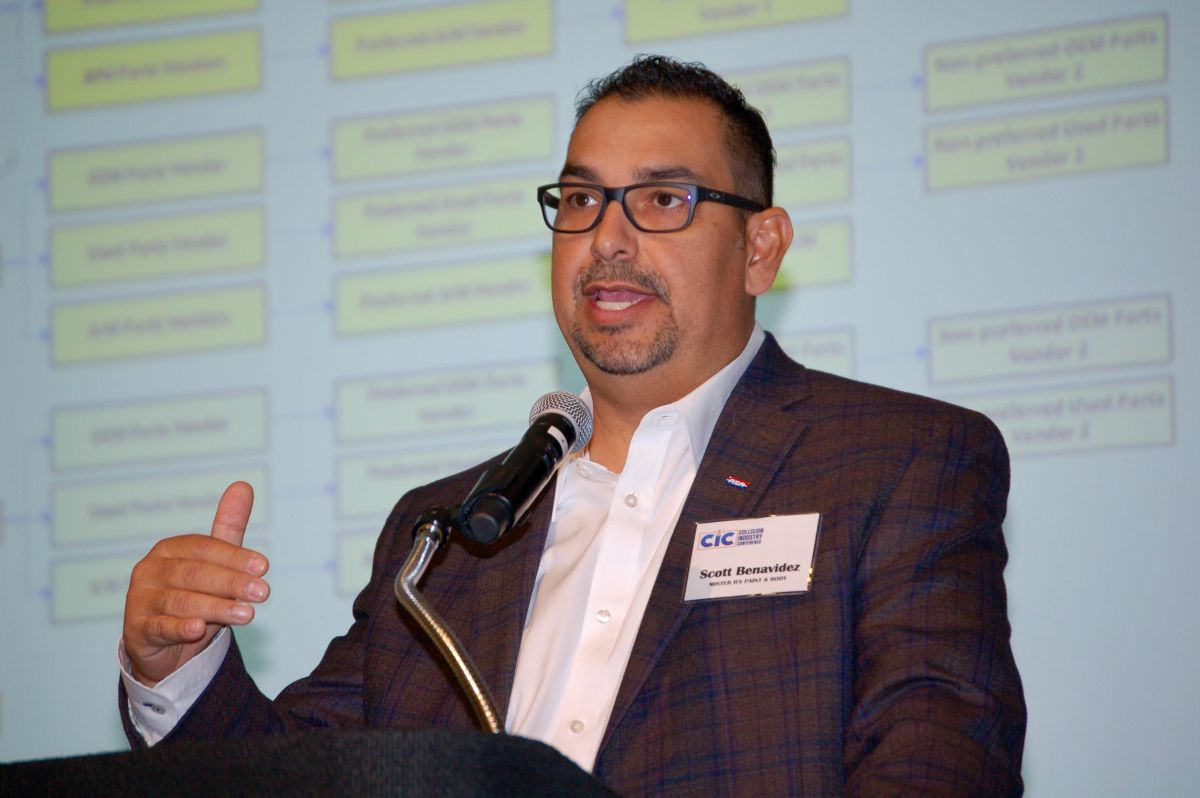Ask collision repair shop owners what they wish auto insurers would do differently, and most will start their list with “pay a higher labor rate” or “compensate us for the OEM repair procedures we are performing.” But shops say there are also some non-financial things insurance companies could do that would improve the claims process for shops and consumers -- and maybe even for the insurers themselves.
Sue Black, who with her son co-owns Dean’s Auto Body in Sheboygan, WI, said she’d like insurers just to better think through the “hidden” costs of parts sourcing.
“We all know that parts are hard to get our hands on anyway,” Black said. “If we would be able to order these supplemental parts from vendors that were within a 50- to 75-mile radius for us, for example, rather than from way across the country, I think that would cut down on some time as well, waiting for those parts to come in.”
Black also pointed to long wait times for supplement approvals as another such hidden cost. Will Latuff, president of Latuff Brothers Auto Body in St. Paul, MN, agreed virtual claims processing has seemed to add to the need for better shop-insurer communication.
“Since COVID, it’s been very difficult,” Latuff said. “They don’t necessarily owe us a conversation when they send the supplement because it is the customer’s policy and not ours, but it sure helps the process move a lot faster and smoother, with less rework. So I think even if they’re going to maintain a virtual presence for handling supplements, that process needs to be refined.
"I think the insurers should realize that the restrictions and guidelines that they put on their appraisers actually hinder customer service and the claims process, and increases cycle time and rental expense," Latuff added. "They could look at tracking different things that would reward the appraiser for making the right decision on that claim. But right now, the appraiser who does the right thing on that claim for that car, for that consumer, can be the nail that sticks out, and they get [negative] attention because their file scored higher on some report.”
Improved Communications
For Tom Ricci, owner of Body & Paint Center in Hudson, MA, his idea for an improvement insurers could make is something that’s “as easy as flipping a switch.” Too few insurers in his state, he said, allow a shop to download an insurer-prepared estimate, resulting in wasted shops’ time rekeying those estimates and not being able to upload supplements.
“Open the communication lines. That would decrease our cycle time,” Ricci said. “I don’t know how they don’t get that. Some of these companies just want to hang on to the way things were. It’s not all insurers. There’s probably a half dozen very good companies, letting you pull down estimates and do ‘warm exchanges’ of supplements. But the rest of them are impossible.”
Scott Benavidez, owner of Mister B’s Paint and Body in Albuquerque, NM, said his wish for the insurance industry is similar: that companies would do a better job of “communication from the top down.”
“We go to the Collision Industry Conference and we hear the top of the chain [at an insurance company] say one thing, and when you get down to the local market, they say something totally different,” Benavidez said. “They just don’t seem to be carrying the same message from here in New Mexico to Nebraska to California. So I’d like to see them get better at that.”
His other hope is that insurers would get back to making decisions about what is “reasonable and necessary” rather than “usual and customary.”
“I don't really think it’ll ever happen because it’s going to cost them too much money, but if we could get there, it would solve a lot of problems,” Benavidez said.
OEM Parts Policies, Pre-Repair Payments
Tiffany Silva of Accurate Auto Body in Richmond, CA, would like to see more insurance companies offering -- and marketing -- auto policies with OEM parts endorsements.
“It is amazing when we have a customer come in that has that endorsement and we don’t even have to look for used or aftermarket parts,” Silva said. “So we’re trying to educate our customers to add that endorsement to their policy so the next time when we see them, there isn’t all the talk about aftermarket parts and the objections to them. It’s so incredibly inexpensive. My last customer told me it cost them about $15.”
The other issue Silva thinks insurers could help shops address is pre-repair payments to customers that shops aren’t told about.
“Last year in particular was probably our worst year in terms of having to track down money,” she said. “My office manager spent so much time on that. There’s no communication. Sometimes it gets deposited straight into the customer’s checking account, and they spend it having no idea that it was even in there. One customer spent $10,000 and then couldn’t pay us. But we had released the vehicle because the insurance company didn’t tell us they had pre-paid them.”
She said the shop has made multiple changes to its authorization form in an effort to find out if a customer received funds from the insurer, and to make the customer aware that money will be owed to the shop.














John Yoswick